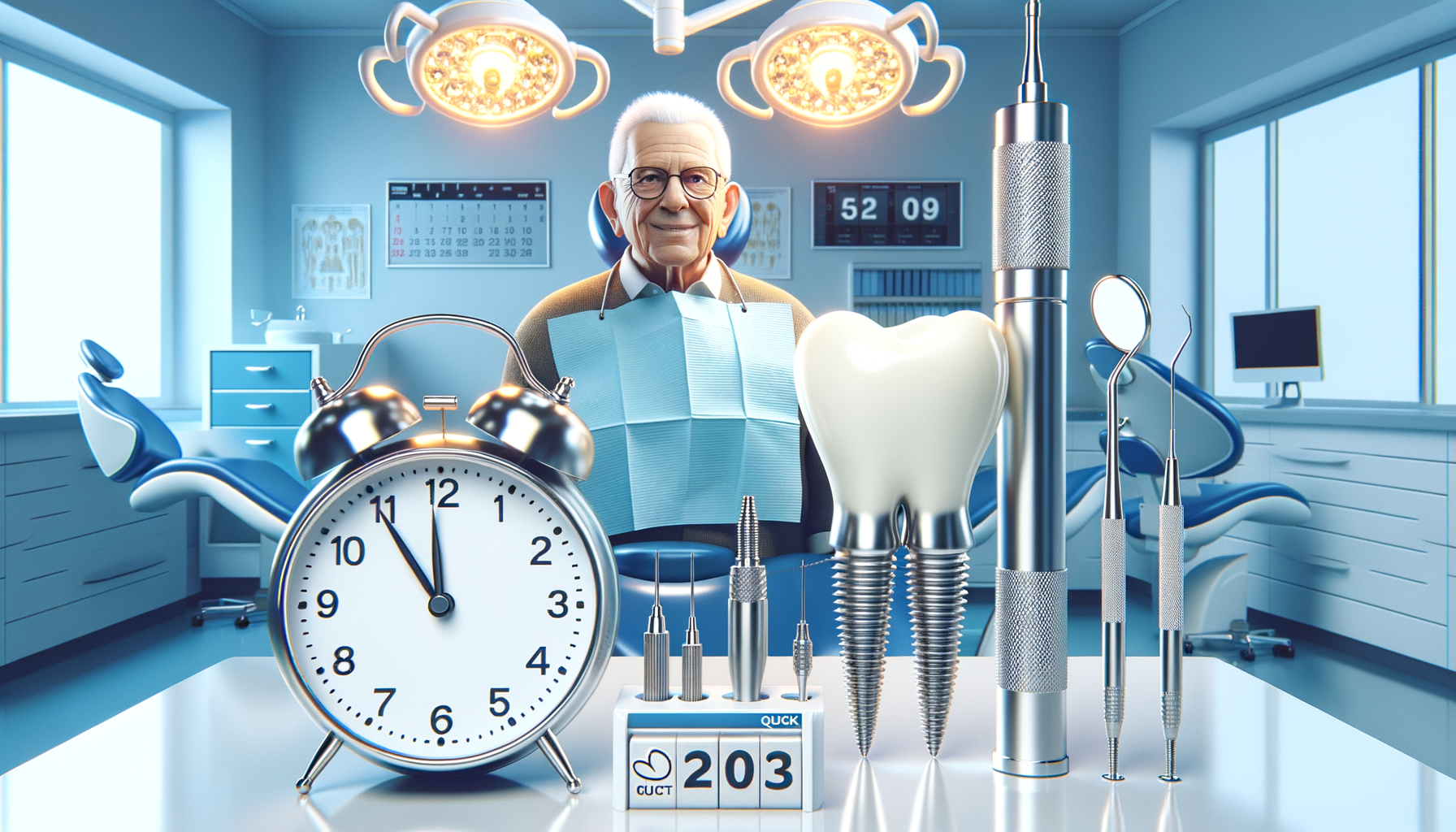Dental Implants for Seniors: Navigating Low Wait Times
Exploring dental implants for seniors with a focus on reducing wait times and improving accessibility.

The Importance of Dental Implants for Seniors
As we age, maintaining oral health becomes increasingly crucial, not just for aesthetics but for overall well-being. Dental implants are a popular solution for seniors who have lost teeth due to age-related issues. They offer a permanent and stable alternative to dentures, improving the quality of life by allowing seniors to eat, speak, and smile with confidence. The significance of dental implants extends beyond the physical; they can also have a profound psychological impact, boosting self-esteem and social interaction.
Dental implants are particularly important for seniors because they help preserve jawbone density, which can deteriorate after tooth loss. This preservation is vital as it prevents the ‘sunken’ facial appearance often associated with aging. Moreover, implants can lead to better nutrition, as seniors can enjoy a wider range of foods without discomfort. This holistic approach to oral health care underscores the importance of making dental implants accessible to seniors.
Challenges in Accessing Dental Implants
Despite their benefits, accessing dental implants can be challenging for seniors due to several factors. Cost is a significant barrier, as implants can be expensive and are often not covered by insurance. Additionally, the process involves multiple visits and surgical procedures, which can be daunting for older adults. Another challenge is the availability of qualified dental professionals who can perform the procedure, which can vary by location.
Long wait times for appointments and procedures can further complicate access. These delays can be frustrating and may lead to prolonged discomfort or health issues. It’s essential to address these challenges to ensure that seniors receive timely and effective dental care. By understanding these barriers, we can work towards solutions that make dental implants more accessible and affordable.
Strategies to Reduce Wait Times
Reducing wait times for dental implants is crucial for improving accessibility for seniors. One strategy is to increase the number of trained professionals in the field of implant dentistry. This can be achieved through education and training programs that encourage new dentists to specialize in implants. Additionally, clinics can optimize their scheduling systems to better manage patient flow and reduce bottlenecks.
Telehealth consultations can also play a role in reducing wait times. By conducting initial assessments and follow-up appointments remotely, dental offices can streamline the process and prioritize in-person visits for those who need them most. This approach not only reduces wait times but also makes the process more convenient for seniors who may have mobility issues.
Innovations in Dental Implant Technology
Advancements in dental implant technology are continually improving the process and outcomes for seniors. Modern implants are designed to integrate more effectively with the jawbone, reducing healing times and increasing success rates. Furthermore, digital imaging and 3D printing technologies have revolutionized the planning and execution of implant procedures, allowing for more precise and personalized treatment plans.
These innovations make the process less invasive and reduce the overall time required for treatment. For seniors, this means a quicker return to normal activities and less time spent in recovery. By embracing these technological advancements, dental practices can offer more efficient and effective care to their senior patients.
Conclusion: Enhancing Access to Dental Implants for Seniors
In conclusion, dental implants are a valuable solution for seniors seeking to improve their oral health and quality of life. By addressing the challenges of cost, accessibility, and wait times, we can make these benefits more widely available. Through strategic planning, technological innovation, and increased professional training, the dental industry can better serve the senior population.
Ultimately, enhancing access to dental implants for seniors is about more than just improving oral health; it’s about empowering individuals to live healthier, more fulfilling lives. As we continue to advance in the field of dentistry, it is crucial to keep the needs of seniors at the forefront of our efforts.